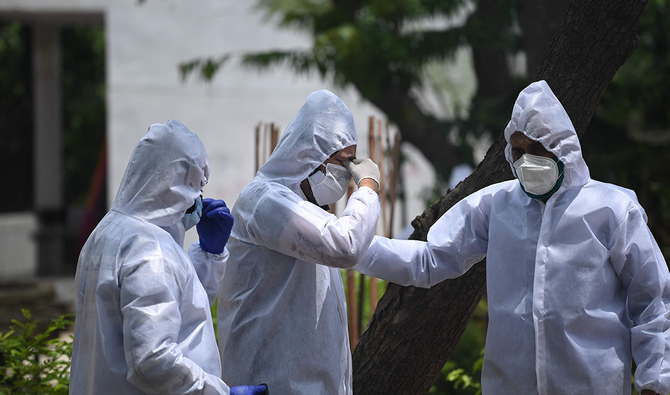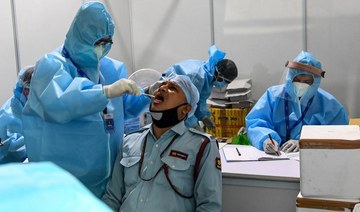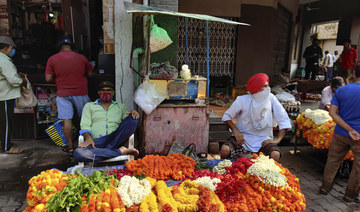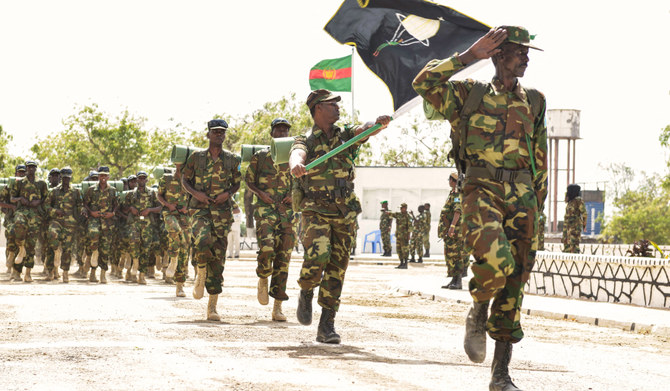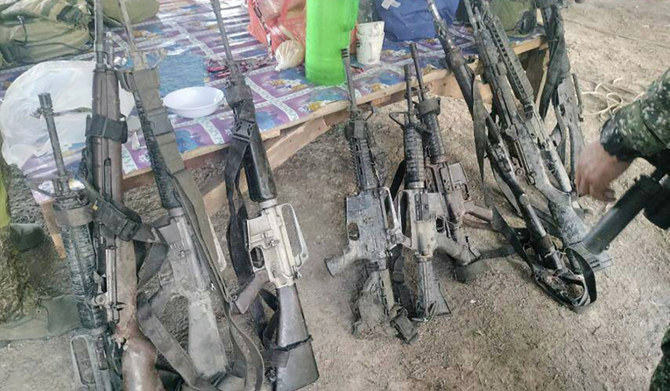NEW DELHI: Local authorities in the Buxar district of India’s eastern state of Bihar on Tuesday confirmed the discovery of 71 dead bodies, suspected to be of coronavirus disease (COVID-19) victims, after they washed ashore along the banks of the river Ganges.
The discovery sent shock waves and panic among locals in the Chausa town of the Buxar district on Monday after they found the half-burnt, decomposed bodies along the river, confirming media reports that the pandemic had spread to rural areas of India, the global epicenter of the pandemic.
“We have conducted the postmortem of 71 bodies on Monday and preserved their DNA for future investigation,” Kanhaiya Kumar, the district’s public relations officer, told Arab News.
He added that the “bodies were in an advanced state of decomposition and had floated in from the neighboring state of Uttar Pradesh.”
Bihar’s Buxar district shares its border with the Ghazipur area of the neighboring state of Uttar Pradesh. The River Ganges, which starts from the Himalayas, crisscrosses through Uttar Pradesh before entering Bihar, flowing into Bengal and eventually merging with the Bay of Bengal.
Locals, however, dispute the district administration’s claims that the bodies came from the neighboring state.
“The fact remains that the water in the river Ganges is shallow these days, and at many places between Uttar Pradesh and Bihar, the river is dry. How can the bodies come from the other state?” Kapindra Kishore, a Buxar-based journalist, told Arab News.
“The villagers are claiming over 100 bodies were floating, and they say that many deaths are taking place in the rural areas that are not being reported,” he added.
On Tuesday, India registered more than 330,000 cases and 3,700 deaths, slightly lower than Monday.
Out of the total tally, Bihar reported over 10,000 cases and 75 deaths.
Some, however, allege that the data is being underreported.
“There is a community transfer of the virus this time, and many are dying in villages without adequate medical supply. You will never get the actual data because people are dying at home without going to the hospital,” Ajit Kumar Singh, a local legislator from the Dumraon area of the Buxar district, told Arab News.
“If earlier 15 to 20 bodies were being cremated per day in the district crematorium, now at least 100 are being burnt every day,” he explained, adding that many locals cannot afford the expensive wood necessary for the funeral pyres.
“Just like COVID-19 medicines are being sold in the black market these days, so too the wood for cremation is being supplied at a higher rate,” he said.
“Poor people who can’t afford wood at higher rates throw the dead bodies into the river in a half-burnt state. This is the reality today,” he added.
According to official data, the Buxar district has registered 78 deaths so far in the second wave of COVID-19.
Doctors say the number is much higher than reported.
“The situation is really grim in Buxar and adjoining areas, and the discovery of the bodies at Chausa shows how bad we are placed,” Dr. Mahendra Prasad, a Buxar-based doctor and district president of the Indian Medical Association, told Arab News.
“Not even cities are prepared to handle the crisis, much less villages. People are dying in rural areas in large numbers, which are not reflected in the official data,” he added.
There are about 100 beds in hospitals across Buxar, which has a population of more than 1.7 million.
“The administration was not ready to handle the situation. Now they are working on it, but whether it will be adequate is difficult to say. We are dependent on God’s mercy,” Prasad said.
One of the worst-affected villages in the district is Dharahara, which reported 15 deaths in the past week.
“In every village, there are more than 20 people who are COVID-19-positive, and in my village itself, in just over one week, some 15 people have lost their lives,” Rama Shankar, a Dharhara-based student activist, told Arab News.
“The government has failed us completely. People are dying due to a shortage of oxygen, a lack of beds in hospitals and the complete negligence of the health sector,” Shankar said, adding that “essential medicine like Remdesivir, which should normally be available for no more than $50, costs $500 in the black market.”
He said that “the virus has spread into the community, but the government is not doing mass testing to break the chain of infection. We are suffering because the government has failed us.”



